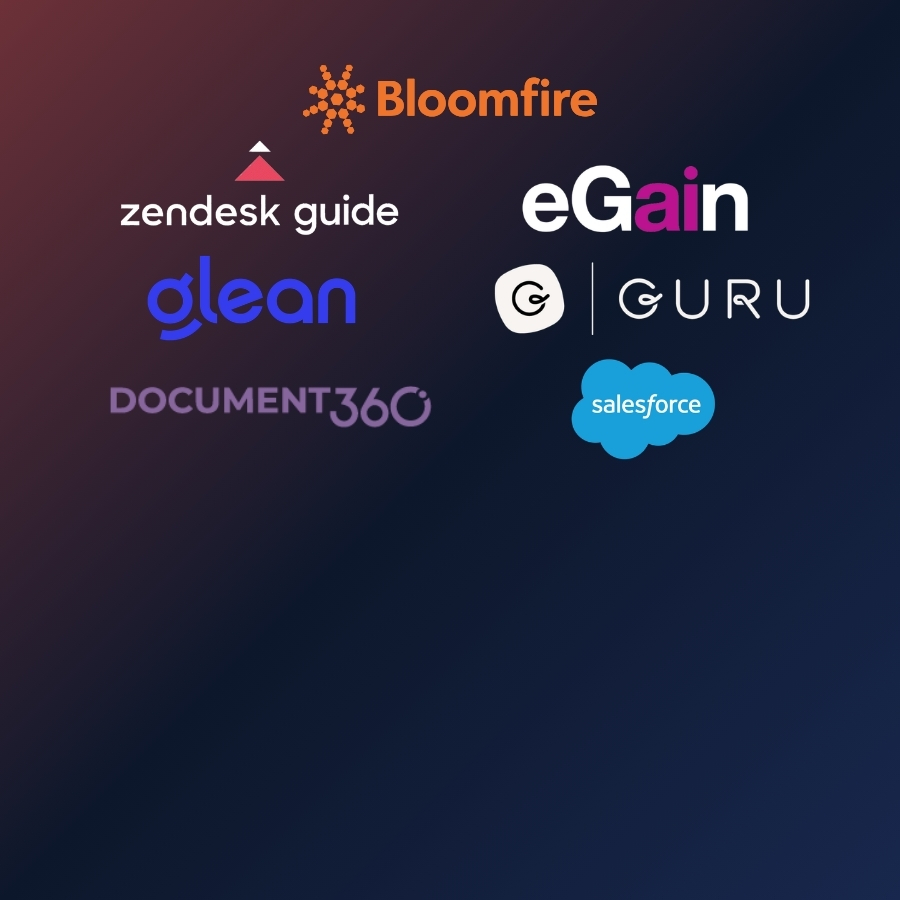What Does Informal Learning Look Like?

When training new employees or providing professional development opportunities to current team members, companies often focus on formal learning opportunities such as classroom education, training videos, and guided online modules. However, according to research from the Journal of Business and Psychology, 70% to 90% of learning occurs in informal situations.
Informal learning at work can take place in all kinds of unstructured environments, from break room chats to a spontaneous knowledge management platform search to pursue an area of personal interest. In fact, in some situations, employees may not even be aware that learning is occurring.
How can your company harness the power of informal learning—without taking away its inherent organic nature? Use this guide to dive into the benefits of this learning strategy and discover how to create a culture that supports informal learning at work.
What Is Informal Learning at Work?
Informal learning is learning that takes place away from structured environments, like classrooms. There are no set goals, objectives, or curricula. Instead, informal learning occurs in a spontaneous, unplanned manner.
Informal learning can happen in a number of different situations and environments. For example, employees could learn something new while watching a video or listening to a podcast. Or, they may hear something in that video or podcast that prompts them to do some further research on the subject.
This type of learning also commonly occurs in conversation with others, whether that’s a chat with a mentor, a networking conversation, or a sidebar with a coworker. Informal learning can also happen in slightly more structured environments, such as team-building activities, games, or job rotations. These are still considered informal learning environments because they are not intended to be formal educational experiences.
What Makes Informal Learning Unique?
In a working environment filled with meetings and deadlines, it can be challenging to fit in formal learning opportunities. However, unlike structured learning, informal learning can be completed at an employee’s convenience—there is no formal training schedule or syllabus. Employees can simply fit it in as their schedules allow.
Informal learning is also a low-pressure activity, as there are no tests or quizzes to ensure an employee has retained the correct information. In fact, the learner may not even be aware that they are absorbing information because it’s done in such a natural and organic manner.
Benefits of Informal Learning in the Workplace
- Learner-driven: Because informal learning is spontaneous and unplanned by nature, it’s learner-driven and self-directed. And because employees are in control of their learning, they are able to hone in on exactly what they want to learn and are interested in—and in a way that resonates with them. That can lead to a sense of fulfillment, which can prompt the pursuit of further learning.
- Relaxed environment: With no tests, quizzes, or certifications, informal learning is a much more relaxed process for employees. It’s low stress, which removes the pressure and can make learning more enjoyable.
- Expanded knowledge points: When employees are only presented with a pre-determined, formal learning program, they only learn those specific knowledge points. Informal learning can encourage them to broaden their knowledge beyond those initial points, creating more informed and well-rounded employees.
- Less company time and fewer resources: Because informal learning happens on the fly, it generally doesn’t require company time or resources (e.g., trainers, classrooms, program development, etc.). Your employees can simply learn what they want, when they want to learn it.
How to Create an Informal Learning Strategy In the Workplace
It may seem counterintuitive to create an informal learning strategy—after all, wouldn’t that make it formal learning? However, it’s possible to encourage informal learning in the workplace while maintaining its organic nature. Here’s how:
Encourage a knowledge sharing culture
The most natural way to encourage informal learning is to create a culture of knowledge sharing. In other words, employees should feel that collaboration and idea sharing is routine and expected. How do you create that culture? Provide constant opportunities for your employees to share information, whether through face-to-face interactions or a knowledge management platform. With this kind of culture, informal learning will happen without any prompting—it will simply become the norm.
Centralize valuable resources for employees
One of the biggest benefits of a knowledge management platform is that all company information is accessible in one central location. And centralizing that information makes it easier for employees to share and absorb it. When they want to seek out new knowledge, they can simply access the knowledge management platform to search relevant topics and read through resources, watch videos, or listen to audio recordings on that subject.
Offer social learning opportunities
Informal learning often happens in casual social situations, like chats over lunch or via an instant messaging system. To encourage more learning, you must provide the opportunity for those social interactions. This could involve organizing in-person gatherings, like team lunches. You can also opt to provide opportunities to connect remotely and asynchronously, whether that’s through videos or a knowledge management that allows interactive Q&As.
Allocate time to learn
Of course, for informal learning to occur organically, employees must have time to interact outside of their work responsibilities and formal learning requirements. Make sure employees know they have the freedom to research areas of interest, seek out new knowledge, and learn from co-workers—all without fearing that they may face any kind of negative repercussions. In fact, communicate that it will likely benefit them and the company!
Encouraging informal learning in the workplace can help employees pursue and retain more information—all contributing to your company’s collective knowledge (and knowledge engagement strategy). With the right tools and strategies in place, you can empower your workforce to effectively and continually expand their job knowledge.

How to Improve Customer Service: 9 Strategies to Automate Success

7 Best Customer Service Knowledge Management Systems in 2026

The 6 Knowledge Management Trends That Redefine Strategic Intelligence in 2026

Estimate the Value of Your Knowledge Assets
Use this calculator to see how enterprise intelligence can impact your bottom line. Choose areas of focus, and see tailored calculations that will give you a tangible ROI.

Take a self guided Tour
See Bloomfire in action across several potential configurations. Imagine the potential of your team when they stop searching and start finding critical knowledge.